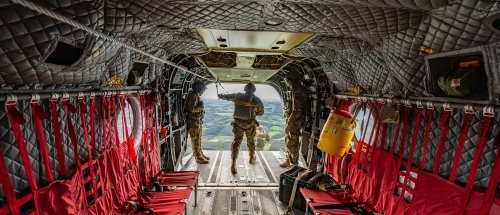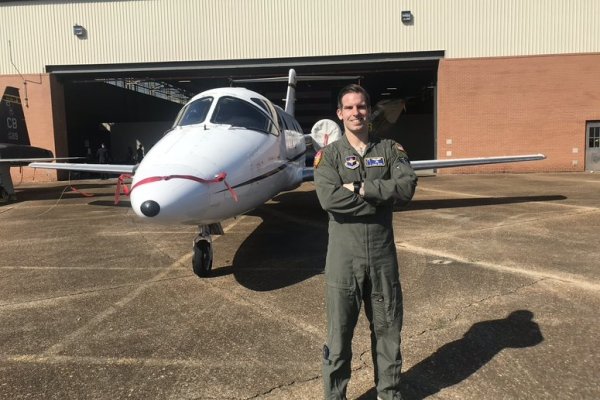
Bachelor of Science in Strategic Studies and Defense Analysis
An Elite Bachelor's Program for the Most Elite Students
There’s a reason Special Operations Forces (SOF) students have enrolled in Norwich University’s online Bachelor of Science in Strategic Studies and Defense Analysis (SSDA) program year after year:
Norwich offers the ONLY PROGRAM OF ITS KIND IN THE WORLD.
Our nation needs multidimensional leaders with the conceptual knowledge and practical skills necessary to protect the country at-large and the community at home. SSDA delivers on that mission & SSDA is ONLY for the SOF Community.
The SSDA program is home to SOF leaders from around the world, in all branches of the military. The program’s innate flexibility and dedicated faculty of experts have made it possible for you to complete your degree while serving active duty in the military or as you transition to civilian life. No matter your ambitions, the SSDA program helps qualify you for a wide variety of career options that will help you climb the ranks including in the government sector, industry, business, and more.
Examples of SOF students this unique program is designed for:
Navy SEALs
Navy SCWW
Navy Divers
Navy EOD
Army Special Forces
Army CA
Army Rangers
Army PSYOP
Marine CSO
Marine RECON
Air Force CCT
Air Force PJ
Build on your military service as Soldier, Sailor, Airman or Marine in the U.S. Special Operations Command (USSOCOM), its subordinate and sub-unified commands, or NATO Special Operations Forces. Your Norwich degree will develop your research, critical thinking, ethical decision making and leadership skills so that you can advance within your command or transition to a new career outside the military.
You, at Norwich
Our approach to integrated curricula allows you to take courses in a wide range of subjects, as well as the opportunity to explore a specific topic of study in depth.
- Transfer up to 90 semester credits and complete your degree in fewer than two years.
- Several start dates per year offer you the ability to enroll when it fits your schedule.
- Relevant electives, including Strategic Communications or Business and Professional Writing.
The appearance of U.S. Department of Defense (DoD) visual information does not imply or constitute DoD endorsement.
Accreditation & Recognition

Norwich University is accredited by the New England Commission of Higher Education (formerly the Commission on Institutions of Higher Education of the New England Association of Schools and Colleges, Inc.).













